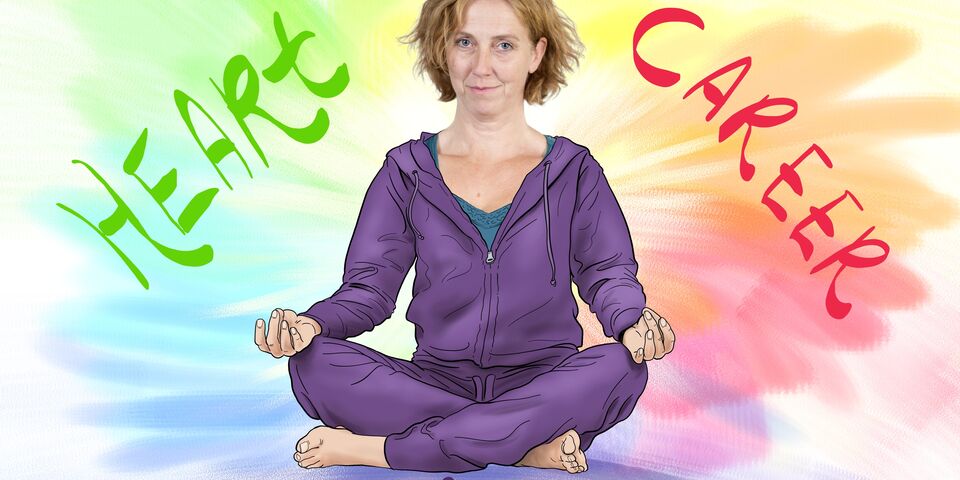The heart has its reasons that reason does not know
Whoever reads this is… highly educated, or soon to be so. And if, next to your diploma, you are also gifted with ambition, chances are that at some point in your life you will be confronted with the dilemma of following your heart or following your ambitions. Intelligent people love to be challenged, but they also love intelligent people and often their true loves are -just as themselves- persons of above-average intelligence and ambition.
So if you are studying or working at TU/e, you or your partner may in the future have to compromise between your relationship or your careers. For most organizations a strong résumé entails a substantial – months if not years-long – stay abroad. Ambitions and education levels notwithstanding, only rarely do ‘trailing spouses’ succeed at also building a career of their own in that particular region.
Last week Kavitha Varathan won one of the two Marina van Damme prizes that were awarded. She hopes to start an organization for partners of expats to help them develop their professional talents to their full potential. The other first prize went to Chantal Tax, who plans to finance a 6-month stay at a prestigious group at Harvard. A striking contrast between two progressive women, both with great potential, yet making very different choices in their lives.
I watch both women and admire and respect them equally. At the same time I consider myself fortunate not having been faced with this dilemma (yet). Would I be willing to leave my love and children behind to pursue my career? Would I have risked my career if he had asked me to follow him? Would he have risked his for mine? All of a sudden discussions about childcare and cleaning the house seem almost petty in this emancipation debate.
Dualism in philosophy and psychology refers to the misconception that body and mind exist as two separate systems. Is this perhaps also the way we consider love and career these days? But here too we are dealing with communicating vessels: the lover following his/her partner but missing out on a meaningful career of his/her own; the scientist leaving family and home behind to fulfil the requirements of his/her up-or-out contract. This presents a genuine burden to both partners, and an actual risk also to their employers. I would therefore like to advocate a more holistic approach; a sound mind in a loving body.
The header is based on ‘Le coeur a ses raisons que la raison ne connaît point’ (Blaise Pascal, 1623-1662)
Yvonne de Kort | associate professor environmental psychology


Discussion